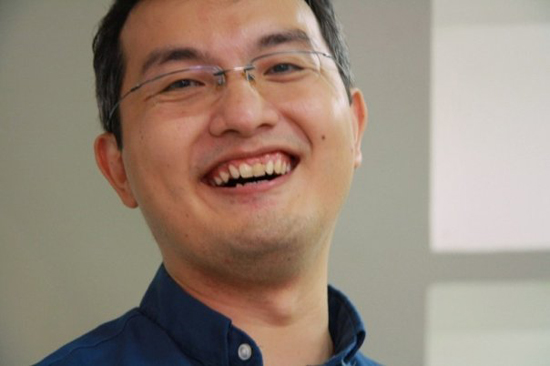
REVEREND Sivin Kit isn’t just any ordinary pastor. The leader of the Bangsar Lutheran Church believes it’s important to have “safe spaces for dangerous conversations”. Even – or maybe especially – in present-day Malaysia.
Kit, 38, is one of the most committed religious leaders when it comes to interfaith dialogue. He was one of the organisers of People Like Us, a forum jointly organised by the Muslim Professionals Forum and Christian-based Friends in Conversation, where Muslims and non-Muslims congregated at his church to engage each other in dialogue.
In early 2009, he also spoke out against the Israeli air-strike on Palestine. He was then invited by Pertubuhan Jamaah Islah Malaysia (JIM) to deliver a solidarity speech and prayer for the children affected by the crisis.
Kit was also one of the people who set up The Micah Mandate, an advocacy group that encourages Christians to engage in social issues. He also uses his blog to publicly discuss interfaith and other national issues.
In an interview with The Nut Graph on 4 Aug 2010 in Petaling Jaya, Kit talks about growing up a minority in both England and Malaysia, and the kind of mosaic he’d like Malaysia to be.
TNG: When and where were you born? And where did you grow up?
Sivin Kit: I was born in 1972. I had quite a nomadic childhood. I was born in Setapak, Kuala Lumpur, where I spent the first three and a half years. Then we moved to England when I was four to join my father who was studying there. I spent four years there and came back to Setapak when I was seven. Then I was back in England for one more year, [before returning] to Malaysia when I was nine until today.
I did kindergarten, pre-school and early primary education in England. In Malaysia, I enrolled into a Chinese school, SRJK (C) Mun Yee in Setapak.
Was the transition from England to Malaysia easy?
[In] Standard One, one of the things I had to primarily deal with was my heavy British accent. It was a [predominantly] Chinese-speaking environment. I was so shy that I actually stopped speaking English for a couple of months except for English classes. But I picked up Mandarin to communicate and made friends quite easily. That was one adjustment.
The other was the system. In England, the system was not so regimented. It was more free-flowing, a little playful. But here, the teachers were stricter, and also there was homework, of course.
When I returned the second time, transition was easier. My mother was an amazing woman. During the year of my absence from Chinese school, she brought the material to England with us. So my English education was supplemented with a Chinese one. When I came back, I fitted in much more easily.
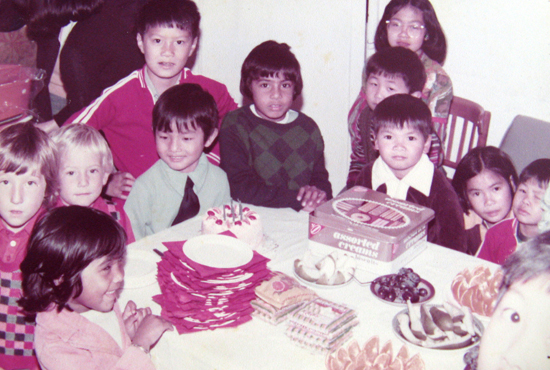
What are the strongest values you have learnt from your childhood?
One of the common values is not to stereotype people. When I was growing up in England, my closest friends came from a variety of backgrounds. We had a Vietnamese whose family was a refugee, an Indian migrant who was settling in as an English citizen, a Brit, and me.
This was also the time I remember racism. Once, some British boys started throwing stones at a young Indian migrant boy. When we hung out in the playground, some bullies would ask why the Vietnamese were in their country.
At the same time, there were positive encounters. My close friends and I hung out in one another’s homes. So there were some Brits who were fine with us, then there were also the bullies.
This theme runs through my high school years, which were also nomadic. I shifted through three schools. I was in Sekolah Menengah Taman Maluri, then Sekolah Menengah Shah Alam Seksyen 16, then Sekolah Menengah Seri Ampang.
The one year that I was in Shah Alam shaped me a lot. We were the only five non-Malay-Muslims in a class of 35. The majority of teachers were also Malays. I had one guy who tried to convert me to Islam with literature which was supposed to debunk my faith as a Christian. We had an interesting and healthy debate even as two 15-year-old boys. Some of my other Malay [Malaysian] friends were not happy with the [attempt] to convert me.
Even as teenagers, I noticed the different shades of Malay Muslims. Some of my Malay friends said the [guy who tried to convert me] should respect my religion a bit more and not be [running] it down.
Having been a minority both in England and Malaysia, [I understand that] there is a wide spectrum of people and they need to be respected. We simply can’t stereotype people.
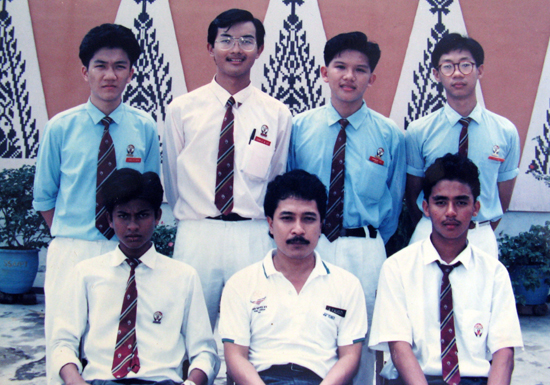
Can you trace back your ancestry?
My maternal grandparents came from China. They were Cantonese. They were butchers who sold pork in Chow Kit market. They were a big family of 10 children. They had the standard Chinese-migrant story, you know, coming here to work and raising their family.
My father’s side is more ambiguous. From the pieces of stories we can get, my grandfather was adopted. So we really don’t know much beyond that. Grandmother was from China. My father was also from a big family of 11 children.
I feel that my history is ambiguous in the sense that I don’t think I am “pure Chinese”, if there is such a term. Some people would say your ancestry mostly traces back to China. I could say that about my paternal great-grandfather, whom I don’t know much about, and [family ties] beyond him. But my grandfather looked a bit like Gandhi, so I wouldn’t know if we have Indian blood ties as well.
Personally, it also means that I don’t have that strong a heritage tied back to China or anywhere. I don’t feel it. My whole identity is constructed from the day my grandparents came to Malaysia. It is an identity that is built from here. I have never thought of going back to China. It’s not home. Home is here, where we started.
Even my grandparents never spoke about going back to China. They may have told us stories from China, or about some relatives who were still there. But never once did I recall them wanting to earn money to go back to China. [It wasn’t just about being patriotic]; it was sheer survival. Where else could we go?
Of course, as the succeeding generation, we feel more pride [about being Malaysian].
Can you tell us some family stories?
We heard stories about the difficulty of my grandparents leaving their home. The challenges of leaving [China] and providing for so many children.
I found that most of the stories my grandparents told were about survival, not so much interracial challenges. Once or twice, I heard them speak of 13 May. My grandparents had a business in Chow Kit [in Kuala Lumpur where the clashes happened], but they never spoke much about it. To them, it happened, we were safe, and it was over.
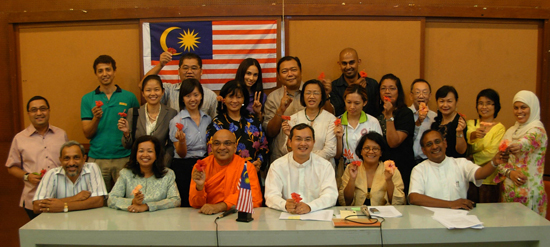
How do you connect with all these stories as a Malaysian?
All these experiences – my family’s evolution to feeling more Malaysian; being a minority in both England and Malaysia; being a pastor and a Christian; and my engagement in civil society, plus engagement with friends from different faiths – have become the raw material that helps me think about what it means to be Malaysian.
I think [the idea of being Malaysian] should be dynamic. I feel I am responsible myself to consciously weave through this thread and test out these ideas with others – [perhaps] with a friend who is agnostic and a civil society activist, or a friend who started a Muslim think-tank. Together, when we engage in this safe conversation, respecting each other, disagreeing … it is this act that is Malaysian. I call it a safe space for dangerous conversation. We have to feel safe with one another.
One of the touching things to me was how many of us came together to speak against the cow-head protest and the pig head that was thrown into a mosque compound. I think those were powerful moments where we all stood together without being apologetic for being who we are, but at the same time stating that we are Malaysians who won’t tolerate violent approaches.
Has there been more religious freedom in your view?
Personally, nothing has stopped me from becoming who I am. [But in the] public [sphere], there is some restriction in discussing subjects deemed to be religiously sensitive. There should be more conversations.
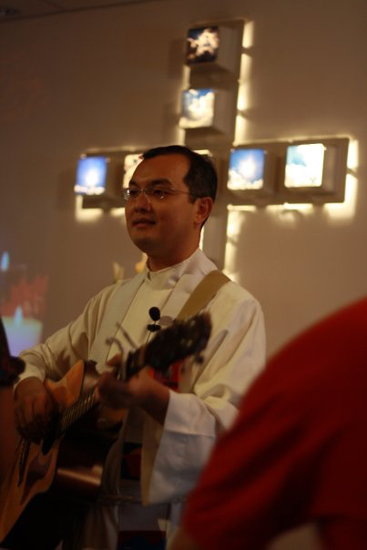
Even with the Allah controversy, I personally find it easy to talk to my Malay [Muslim] friends whatever their stand on the matter is. I wonder why that cannot be translated in the public space, moderated by wise people, because we cannot run away from religion. We might as well deal with it in a helpful way rather than sweep it under the carpet, and then it boils up again.
One example was a Muslim friend who asked, “Is it true that Christians use the term ‘Allah’ to convert Muslims?” That opened up a conversation between us, and I explained the history of the Bible’s translation. That gave him the opportunity to understand where we were coming from.
In another conversation, less-educated Muslim friends in the peninsula have never heard the term “Allah” used by [English-speaking] Christians. So, it feels strange [to them] compared to in Sabah and Sarawak, where “Allah” is commonly used [by Malay-speaking Christians]. It is not the term itself; the use of the term has many different dimensions, and we need to have a space to talk about it.
Describe the kind of Malaysia you would like to see for future generations.
As Malaysians, we are all pieces that fit into one part. We are all unique, but there is something more. “Melting pot” is not the image that I like because we may lose our identity. I prefer a mosaic, because we are still ourselves, but we can still create something bigger. ![]()
The Nut Graph needs your support


Paul Long says
I am thankful for people like Sivin. Thanks for publishing this story.